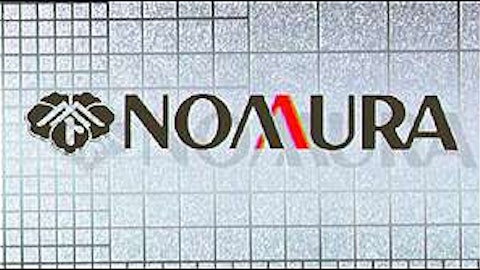The recent changes in the Japanese economic policy and the volatility in the yen/dollar exchange rate are altering local banks’ valuations. Japanese banks’ portfolios have a big proportion of Japanese bonds, which will would lose value in the event of rising rates.
As we know, Ben Bernanke’s indication to reduce the monetary stimulus in the U.S. raised concerns all around the world. Higher interest rates in America will drive funds from overseas — including Japan — back to the U.S., reducing the great amount of liquidity that the world was experiencing since 2008. This new context will impact many industries but Japanese banking is certainly one to pay special attention to.
I will analyze three Japanese financial institutions to assess their position in the current environment.
The company’s first-quarter presented mixed results. Gross profit reached $11.74 billion, 9% higher than the prior-year’s quarter. A huge increase in net gains on the security portfolio was the main factor behind this growth. Net interest income dropped 11% to $5.27 billion, driven by tighter domestic deposit-loan margin and lower interest income in global markets. Net income, without the one-time effect of negative goodwill, decreased 12.9% to $2.3 billion.
Mitsubishi UFJ Financial Group Inc (ADR) (NYSE:MTU)’s elevated level of gross profit and strong capital position helps it maintain a good position within the Japanese banking environment. The company still experiences a growth in deposits and loans, which adds profits and liquidity to the business.
The company recently entered in a global strategic alliance with
which will expand its business into new territories and businesses. I strongly support this agreement, since it will certainly reduce exposure.
This bank has a strong business model. Its diversified product mix, along with its high gross profits, will boost its bottom line. However, the Japanese economy presents a highly competitive environment where volatility still prevails. So, be prudent.
The company posted a good performance for its fourth quarter. Net revenue increased 18% YoY to $22 billion while income before taxes grew 180% to $3 billion.
Nomura Holdings, Inc. (ADR) (NYSE:NMR) used to be one of the world’s leading investment banks in the 80s, but since then, the bank has remained in limbo after a series of wrong steps. Its former CEO, Kenichi Watanabe, had to resign in mid-2012 following accusations of insider trading. Moreover, the bank’s international ambitions may not come to reality since many of its former Lehman executives have departed.
Nomura Holdings, Inc. (ADR) (NYSE:NMR) controls one fifth of the Japanese public investment trust market and its retail and asset management businesses remain highly profitable. If global markets recover, Japanese investors will move away from their savings accounts and look for better investment opportunities. In this scenario, Nomura Holdings, Inc. (ADR) (NYSE:NMR) should grow its assets under management at a respectable rate.
Nontheless, I do not foresee a major improvement in the global economy, especially after the Fed’s indication of reducing stimulus.
The company posted better results for its third quarter. Consolidated gross profit reached $20.3 billion, a 15.6% jump year over year, while net income grew 12% to $4.93 billion. Mizuho Financial Group Inc. (ADR) (NYSE:MFG) leverages on the Japanese economy, which, as I have discussed, was showing slight recovery despite its volatility. Since domestic credit quality and asset prices have improved, the bank is experiencing better times. Plus, boosting trading profits and a bull market in Japanese securities have helped the company’s big stock portfolio.
However, a great part of the last decade found Mizuho Financial Group Inc. (ADR) (NYSE:MFG) under tough circumstances and it is hard to find many reasons to be optimistic about the company in the near-term. Despite the economy, the main issue for Mizuho Financial Group Inc. (ADR) (NYSE:MFG) is that it lacks competitive advantages against its peers and has no moat to rely on.
The company could greatly suffer if things do not go according to plans. The bank is currently facing macroeconomic headwinds in its home country. Low loan demand and problems with credit quality in its portfolio keeps new customers away. In addition, net interest margin is already low for the bank, dragging profitability.
Conclusion
Mitsubishi UFJ Financial Group Inc (ADR) (NYSE:MTU) remains exposed to Japan’s high volatility levels. However, I am very confident about the company’s alliance with Morgan Stanley (NYSE:MS), which should improve results.
It is difficult for me to make a case for investing in Nomura Holdings, Inc. (ADR) (NYSE:NMR) at anything but very low prices. The current scenario might not be the best for the company either, as it is uncertain.
Mizuho Financial Group Inc. (ADR) (NYSE:MFG) is not yet inspiring confidence. The company’s portfolio credit quality problems and low loan demand in Japan make me stay away from this stock for now.
Louie Grint has no position in any stocks mentioned. The Motley Fool has no position in any of the stocks mentioned. Louie is a member of The Motley Fool Blog Network — entries represent the personal opinion of the blogger and are not formally edited.
The article Japanese Banks and the New Interest Rate Context: How Will They Perform? originally appeared on Fool.com is written by Louie Grint.
Copyright © 1995 – 2013 The Motley Fool, LLC. All rights reserved. The Motley Fool has a disclosure policy.




